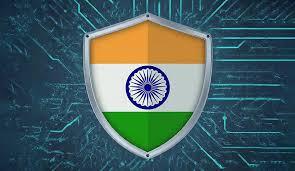The trajectory of the Cybersecurity Market Size In India is inextricably linked to the nation's evolving regulatory and policy landscape. The Indian government, recognizing the critical importance of a secure cyberspace for its economic and national security, has become a major driver of market growth through a combination of policy-making, regulation, and direct investment. The establishment and empowerment of key government bodies are central to this story. The Indian Computer Emergency Response Team (CERT-In), as the national nodal agency for responding to cybersecurity incidents, has been at the forefront of this effort. Its directives, such as the recent mandates on incident reporting timelines and data logging for service providers, have created a strong compliance imperative for all businesses operating in India. These regulations force companies to move from a reactive to a more proactive security posture, compelling them to invest in the tools and services needed for logging, monitoring, and rapid incident response, such as SIEM and SOAR platforms. This compliance-driven demand is a powerful and non-discretionary engine of market growth, fundamentally raising the baseline for cybersecurity maturity across the entire Indian corporate landscape.
Key Players
In the context of regulation and policy, the key players are not just corporations but also the government and quasi-governmental agencies themselves. CERT-In is the most prominent player, acting as the central coordination point for cybersecurity. The National Critical Information Infrastructure Protection Centre (NCIIPC) is another key player, tasked with protecting the nation's most critical sectors, such as banking, power, and telecommunications, from cyberattacks. Its guidelines and audits create a significant demand for specialized OT (Operational Technology) and industrial control system (ICS) security solutions in these vital sectors. Furthermore, the Reserve Bank of India (RBI) has played a crucial role, issuing a steady stream of stringent cybersecurity directives for all banks and financial institutions, making the BFSI sector one of the largest and most mature consumers of cybersecurity technology in the country. On the corporate side, the key players are the consulting and advisory practices of the "Big Four" firms (Deloitte, PwC, EY, KPMG) and other specialized compliance consulting firms. These players are essential partners for Indian businesses, helping them to interpret the complex regulatory landscape and to design and implement the necessary controls to achieve and maintain compliance, thereby driving the adoption of a wide range of security technologies.
Future in Cybersecurity Market Size In India
The future of the cybersecurity market in India will be profoundly shaped by the anticipated passage and implementation of a comprehensive national data protection law, akin to Europe's GDPR. The proposed Digital Personal Data Protection (DPDP) Bill, once enacted, will be a massive catalyst for the market. It will create a whole new set of stringent requirements for how companies collect, process, and protect the personal data of Indian citizens. This will fuel a huge wave of investment in a wide range of data-centric security technologies. This includes data discovery and classification tools (to find where sensitive data resides), data loss prevention (DLP) solutions (to prevent it from leaving), encryption and tokenization technologies (to protect it at rest and in transit), and robust identity and access management (IAM) platforms (to control who can access it). The future will see a major shift in security spending, moving from a primary focus on network security to a more balanced focus on data security and privacy engineering, a trend already well-established in North America and Europe. This regulatory-driven future will create a massive new market segment for privacy-enhancing technologies.
Key Points
Several key points emerge from an analysis of the regulatory impact on India's cybersecurity market. First, government regulation is not a hindrance but a primary catalyst for market growth, creating a powerful, compliance-driven demand for a wide range of security tools and services. Second, specialized government agencies like CERT-In and the NCIIPC are playing a central role in setting security standards and driving adoption in critical sectors. Third, the forthcoming national data protection law will be a transformative event for the market, creating a massive new wave of demand for data-centric security and privacy technologies. Finally, the need for compliance is elevating the role of consulting and advisory firms, who are key players in helping businesses navigate the complex regulatory environment. Unlike the more market-driven dynamics of North America, the Indian cybersecurity market's growth trajectory is uniquely and powerfully shaped by this top-down, government-led push for a more secure and resilient digital nation. The Cybersecurity Market Size In India size is projected to grow to USD 51.88 Billion by 2035, exhibiting a CAGR of 18.02% during the forecast period 2025-2035.
Top Trending Reports -



